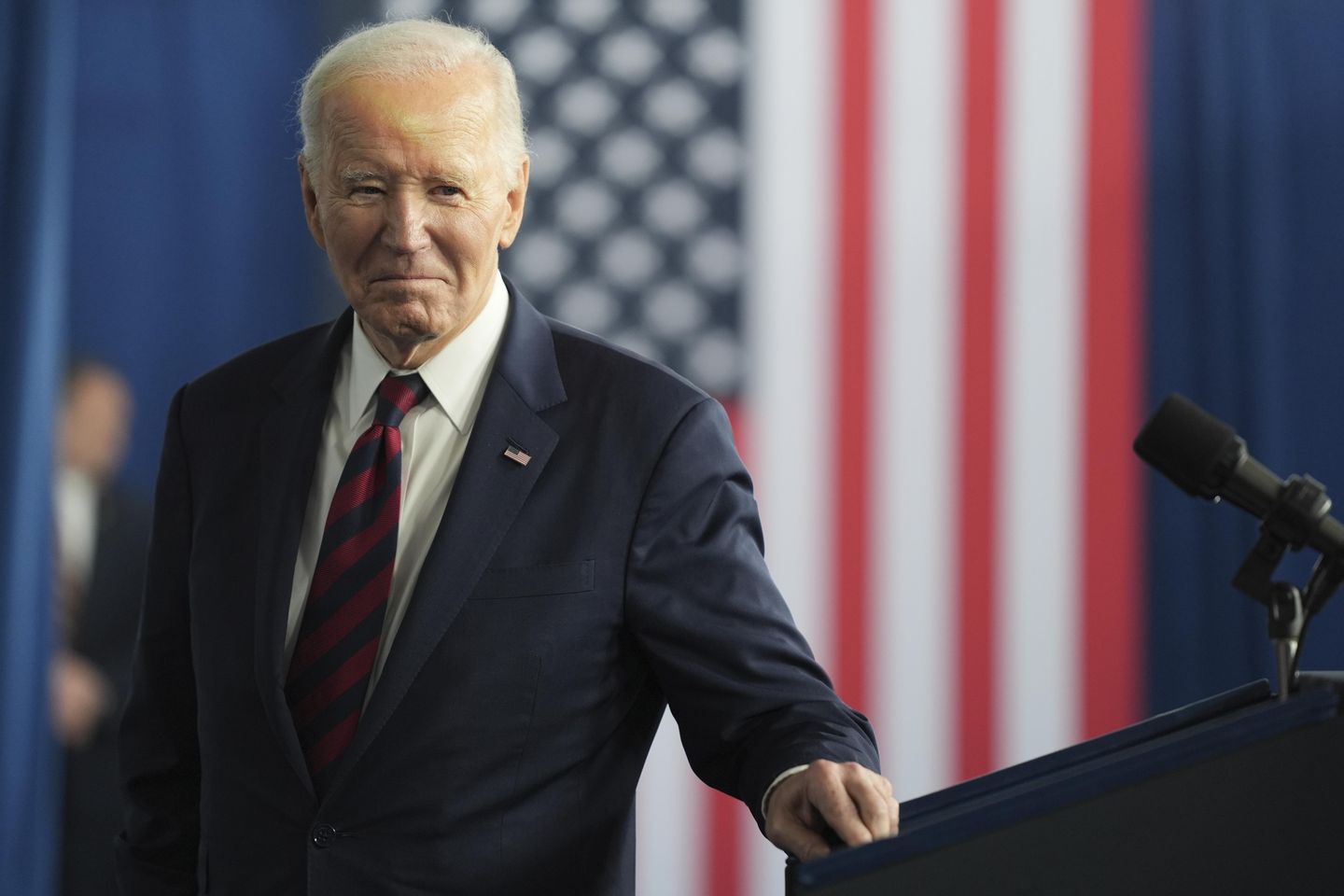
A top Justice Department official warned the Biden administration that thousands of last-minute pardons signed by autopen were legally flawed and went against President Biden’s intentions by granting clemency to violent offenders who murdered children and police officers.
Associate Deputy Attorney General Bradley Weinsheimer criticized “highly problematic” language used in a single warrant, signed by the autopen, that pardoned hundreds of criminals in the final days of the Biden administration, according to a Jan. 18 email reviewed by The Washington Times.
Mr. Weinsheimer, writing to top Biden administration lawyers two days before Mr. Biden left office, said the wording of the pardoned offenses was too vague and could render the commutations “ineffective.” The lack of specificity could also result in commutations “in circumstances, including for crimes of violence, that was not intended,” he warned.
He also noted the Justice Department was blocked from playing any role in vetting the candidates for clemency and said the White House granted some pardons despite “voluminous objections” from the victims’ families.
The Weinsheimer email was released by the Justice Department to a legal watchdog group amid the Trump administration’s probe of the Biden administration’s heavy use of the autopen. It shows for the first time that top career lawyers at the Justice Department objected to the volume and scope of the last-minute pardons and questioned their legality.
The mechanical signature was used to sign off on three warrants granting clemency to thousands of criminals on behalf of Mr. Biden. The former president, 82, issued more pardons than any other president.
Among those granted clemency were dozens of violent criminals the Justice Department deemed “highly problematic.” They included offenders such as Russell McIntosh, who shot to death a woman and her two-year-old child after she threatened to expose his drug business. Others who received commutations were violent gang leaders and individuals convicted of crimes involving murders, kidnapping and rape.
McIntosh and most of the other violent offenders pardoned by Mr. Biden have been released from prison and now walk the streets free.
But other pardoned offenders remain behind bars on shortened sentences and the watchdog group, Oversight Project, wants the Justice Department to deem their pardons illegal and bar them from release. They also want more documents and emails released that reveal who in the Biden administration put together the pardon list, as well as how they may have acted improperly on behalf of a cognitively impaired president.
Mr. Weinsheimer, in the Jan. 18 email, sought clarity on the pardons from the president, recommending Mr. Biden provide a statement listing each inmate’s offenses covered by the commutation. Mr. Biden did not provide any additional details.
The Justice Department’s struggle to interpret the pardons “animated the fact that President Biden was not running the show in his White House and was not the person making decisions and exercising core presidential powers that only belong to him,” Oversight Project Executive Director Mike Howell said.
Mr. Biden, they believe, was not involved in deciding who would receive a pardon and that the list was compiled by White House staff influenced by left-wing advocacy organizations.
“Is this going to be a political talking point, that we refer to Biden as the autopen presidency and everybody laughs, or is the Justice Department going to actually take steps to impose accountability,” Mr. Howell said.
Mr. Trump said earlier this year that the pardons were illegal because they were not signed by Mr. Biden personally.
Mr. Biden denies he was uninvolved. He said earlier this summer that he voiced permission for all of the clemency warrants and criticized the Trump administration and congressional Republicans for investigating the matter. Mr. Biden’s chief of staff, Jeff Zeints, gave the final sign-off on the huge slate of pardons and sentence reductions. Mr. Biden did not approve each one. Instead, he told the New York Times, he approved “the standards he wanted to be used to determine which convicts would qualify for a reduction in sentence.”
Among those standards, Mr. Biden said, was that those he pardoned had committed non-violent drug offenses. That claim was repeated in a White House announcement about the pardons issued shortly before Mr. Biden walked out of the White House for the last time on Jan. 20.
Days earlier, Mr. Weinsheimer criticized the White House’s public explanation that claimed the commutations were given to people who committed non-violent drug offenses.
“I think you should stop saying that,” Mr. Weinsheimer wrote to associate White House Counsel DeAnna Evans on Jan. 18, “because it is untrue or at least misleading.”















